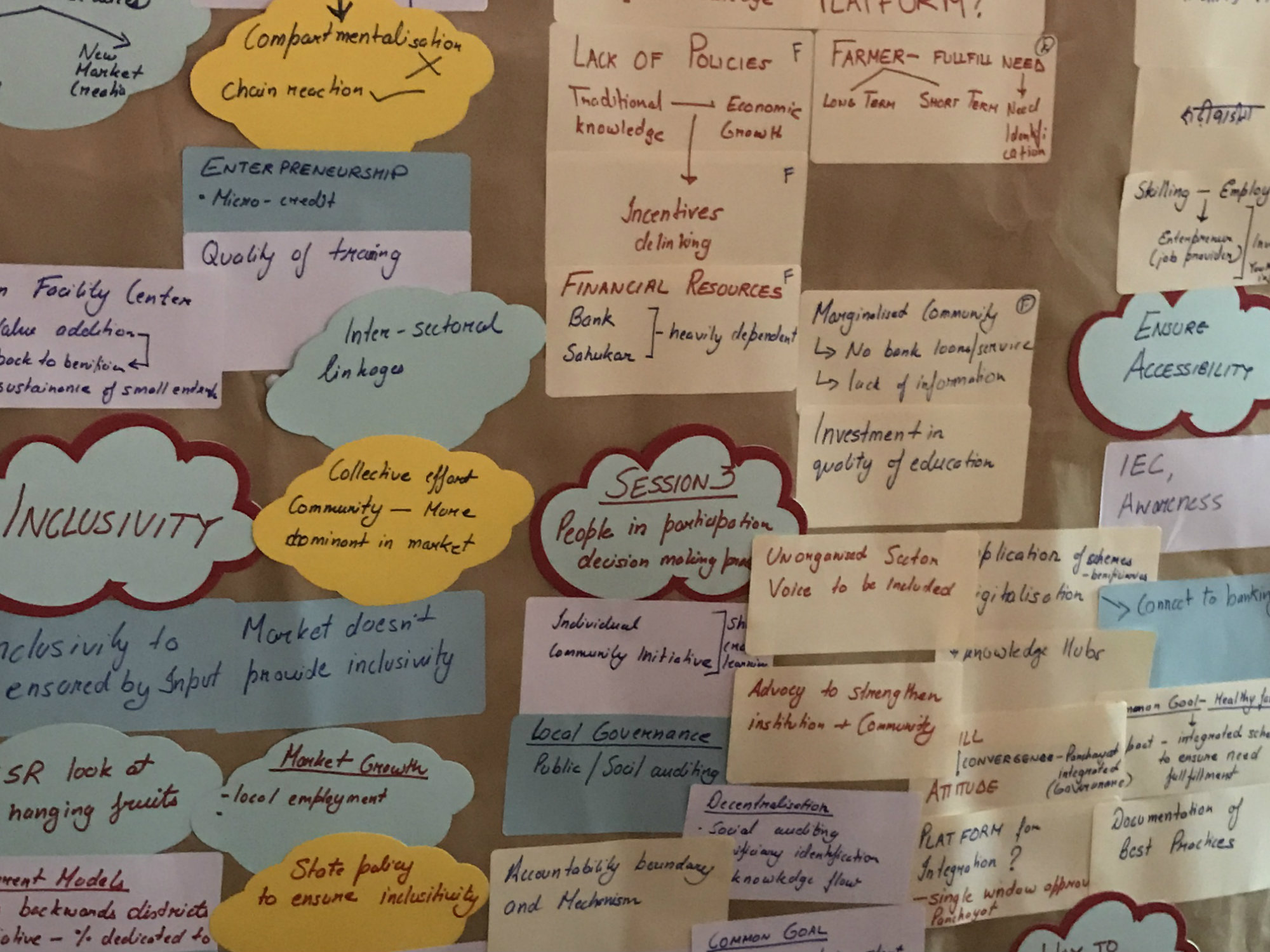
I am so fortunate to be placed in my internship for this time period. Here, I had a chance to participate in Development Alternatives’ (DA) annual conference, Taragram Yarta, and meet with professionals in this space from all over India. I had read a bit about this gathering of global professionals before my official acceptance with DA, but being a part of the experience was something entirely different. In a mixed format of dialogue and field visits, I met with amazingly passionate and driven leaders, all keen to tell me about what they were able to accomplish within their respective organizations and how they look forward to contributing to the greater goal of a greener future for India’s emerging economies.

In one of our roundtable discussions themed “investing in people,” we had an amazing discussion on changing the language from one that elicits a response associated with expectation of return or monetary gain to one of supporting wellbeing. I walked away with a number of such “a-ha” moments.
Over lunch I met with a young professional who shared with me what was happening currently for women in India and the reaction in respects to clothing. Though impossible to accurately summarize the half hour discussion, what’s fascinating is that the trend to “trousers” and jeans is reminiscent of the Western cultural backlash/ feminist movement women experienced in the 60s and 70s.

Describing all the style nuances, she emphasized how it symbolizes choice. Her generation is the first to go out in the evening, to choose their clothes, their hobbies, their sexual experiences. These are all things, no matter where I fall on the spectrum of personal choice and value, I take for granted living in Canada. At the same time, I recognize my own limitations as a woman in this country and don’t venture out at night, even to a market for food. Perhaps these pant-wearing feminists will make it possible for my daughter to be safe when she wants to grab a snack after dark on her own adventures to this beautiful country in the future.
In confidence, as a woman, she told me that she really does prefer traditional clothing. She noted, that once you cross that line and prove your point, women re-find/center themselves and want to wear sarees and the like once again. However, as women they are still fighting so hard for choice, which Western clothing represents to them, and many feel they cannot admit their feelings openly. Personally, she expressed how she still feels the need to push back and wear the uncomfortable pants for her fellow sisters and the next generation. No matter what they choose to wear, I am so honored to meet these women who are self-sacrificing in so many ways to create space for equality and get back to the true roots of their culture before the perversion of patriarchy occurred. The desire to exercise choice and the freedom to do so is as powerful as the women who are making it possible here.
Submitted by Ashley Hull